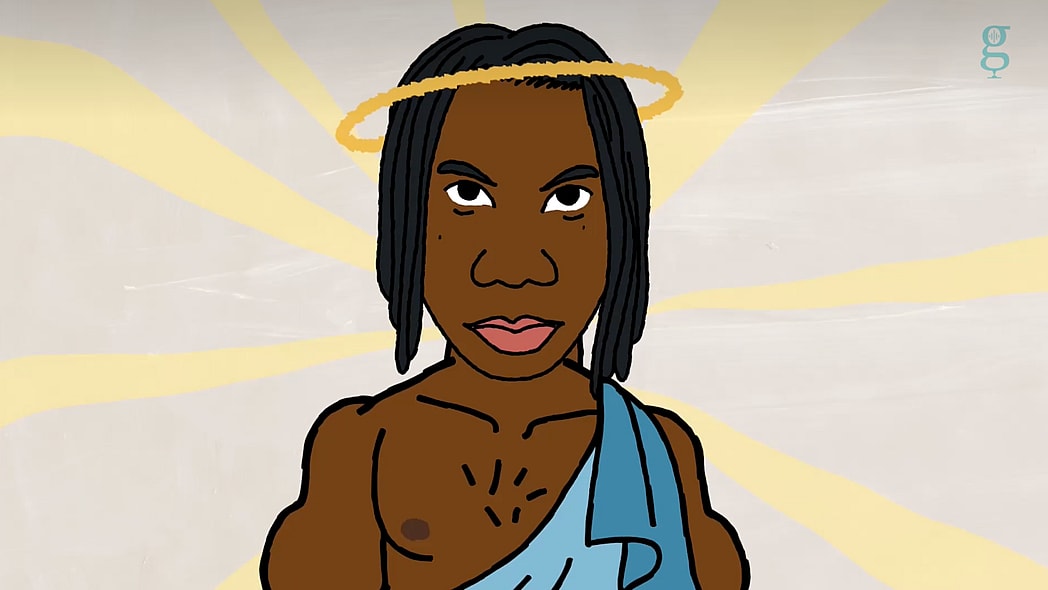Editor’s note: The following article is an op-ed, and the views expressed are the author’s own. Read more opinions on theGrio.
One of the greatest rappers of all time was homeless as a teenager, but being homeless was a big part of what fueled his rise. I’m talking about KRS-One, the man at the center of the new episode of “Star Stories With Touré.” See, KRS left home when he was 16. He left voluntarily because he did not like living with his mother. I know all of this and more because I spent years working on a memoir with KRS, or as friends call him, Kris. It was never completed, but I spent hours listening to him talk about his amazing life. It’s a wild ride.
As a teenager, he spent months sleeping outside on benches in Prospect Park in Brooklyn. But even when he was homeless he spent his days in the library being productive by reading all sorts of books about science, physics, mythology and philosophy, thus giving himself an education that was entirely different than what he would’ve gotten in school. Even then, he was convinced that he was going to become a rap star.
One day, he was meditating in the park when he had a vision of himself walking over a bridge. He got up and walked over the Brooklyn Bridge into Manhattan. Then he walked through the streets until he stumbled upon a men’s shelter. He began living there.
Sometimes at the shelter, a group of Hare Krishnas would come by and offer the men a free meal if they would help hand out pamphlets about their religion. Only our man agreed to help them. When he got back to the shelter, people called him “Krishna” as a way of mocking him. But he liked the nickname because, he told me, it meant they were calling him by the name of God. So Krishna stuck. Soon it was shortened to Kris, which remains his name to this day.
When Kris became a graffiti artist, which was before he began rapping professionally, he tagged KRS-One as in, like, Kris the First. That’s how he became KRS-One. Later on, he was writing a rhyme, and in the midst of writing, it came to him like a bolt of lighting — Knowledge Reigns Supreme Over Nearly Everyone. That’s what KRS-One stands for but it’s a backronym. The letters came first. Their meaning came after. He was Kris first and then KRS-One and then the meaning of that got filled in. But the name KRS-One links him to the graffiti era — it’s an MC name in graffiti language, which takes us back to a time when MCing was just one of many things you did.
Back in the day, a lot of people in hip-hop culture lived three or even four of the elements of hip-hop — MCing, DJing, b-boying, and graffiti writing. People could dance and write and rap and get behind the turntables. You may not have been great at all of them or any of them, but you did them because you loved the culture. Nowadays, people tend to be very specialized. If you’re a rapper that’s all you do. Most MCs don’t make music except for the music they make with their mouths. They definitely don’t dance. That’s fine, I understand, but back in the ’80s, back in KRS’s time, MCs tended to also engage in other parts of hip-hop, and I love being able to hear that bit of history in his name.
For much more on the story of KRS-One, watch “Star Stories With Touré,” “OG Rap Beef: Queens vs. The Bronx.”

Touré is a host and Creative Director at theGrio. He is the host of the docuseries podcast “Being Black: The ’80s” and the animated show Star Stories with Toure which you can find at TheGrio.com/starstories. He is also the host of the podcast “Toure Show” and the podcast docuseries “Who Was Prince?” He is the author of eight books including the Prince biography Nothing Compares 2 U and the ebook The Ivy League Counterfeiter.
TheGrio is FREE on your TV via Apple TV, Amazon Fire, Roku, and Android TV. Please download theGrio mobile apps today!


